Subtraction practice Easy Worksheets for Ages 6-7
27 filtered results
-
From - To
Boost your child's math skills with our "Subtraction Practice Easy Worksheets" designed specifically for ages 6-7. These engaging and interactive worksheets provide a fun way for children to grasp fundamental subtraction concepts through colorful visuals and relatable scenarios. Each activity is tailored to enhance a child's confidence in math while promoting independent learning. Parents and teachers will appreciate the easy-to-follow instructions and the opportunity to track progress. Perfect for both classroom and home use, these worksheets are an invaluable resource to help young learners succeed. Start their subtraction journey today with our delightful and effective practice sheets!
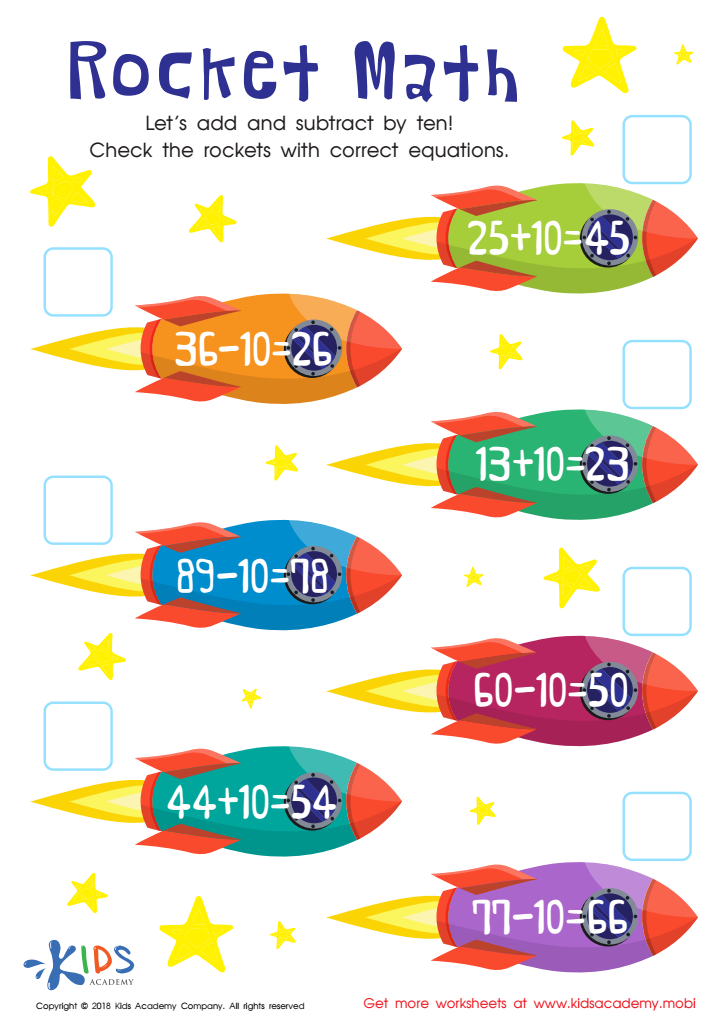

Rocket Math Worksheet
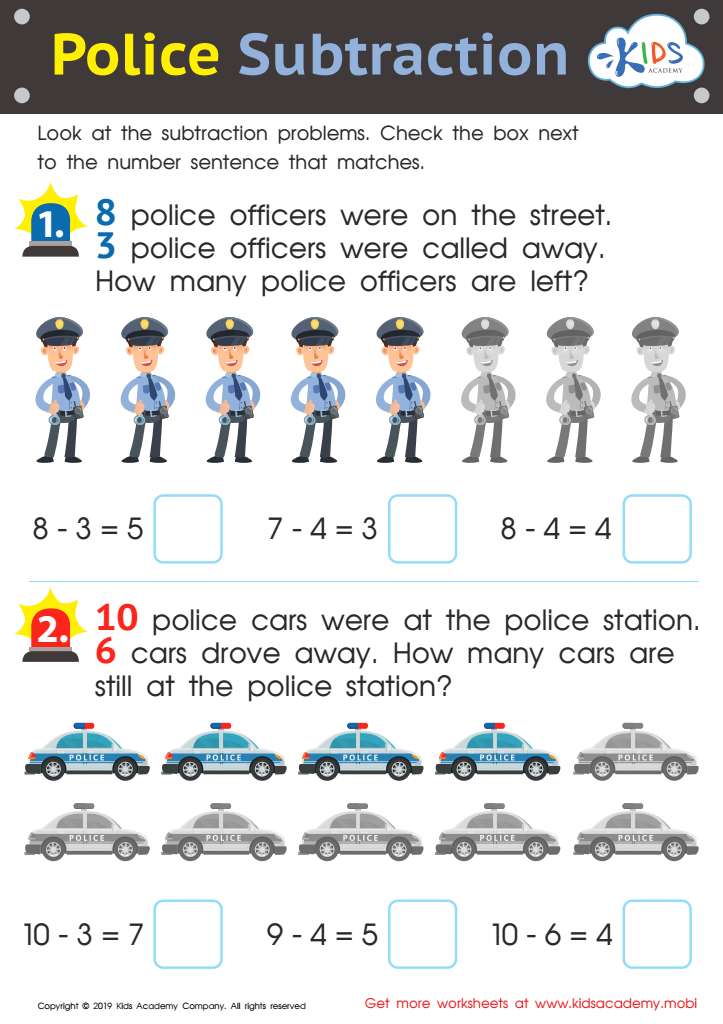

Police Subtraction Worksheet
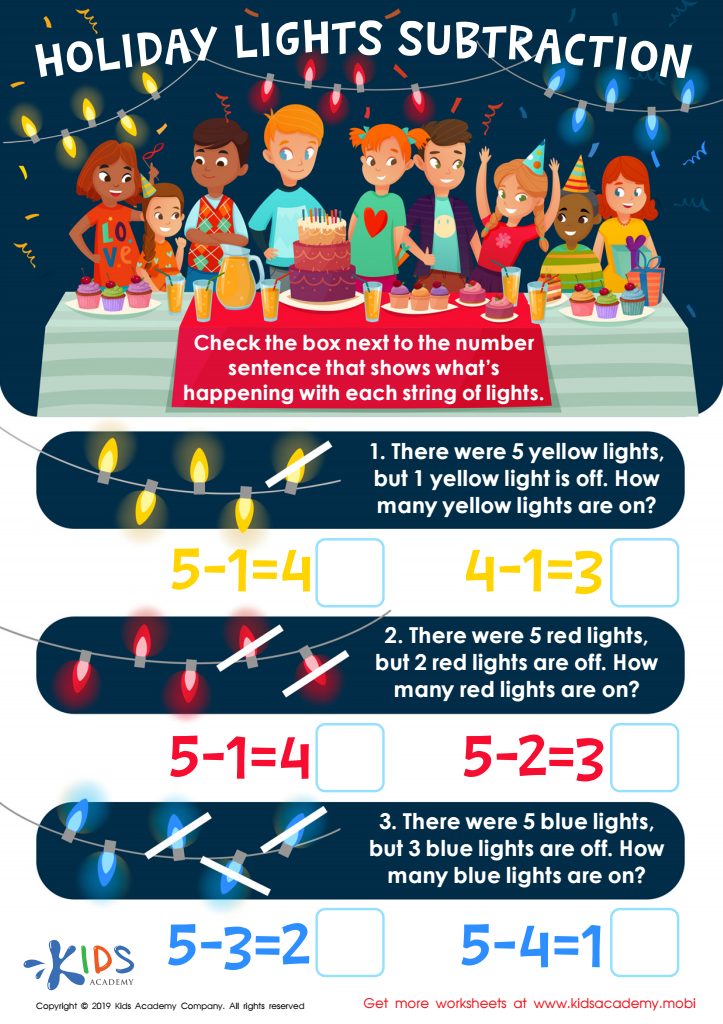

Holiday Lights Subtraction Worksheet


Find 9 Worksheet
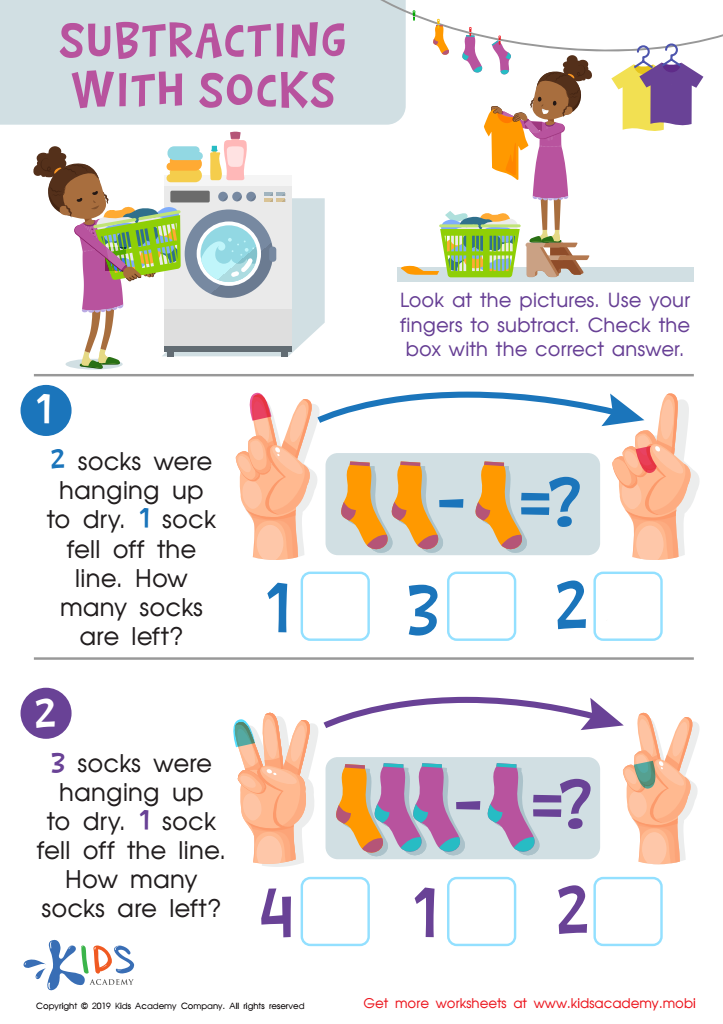

Subtracting Socks Worksheet
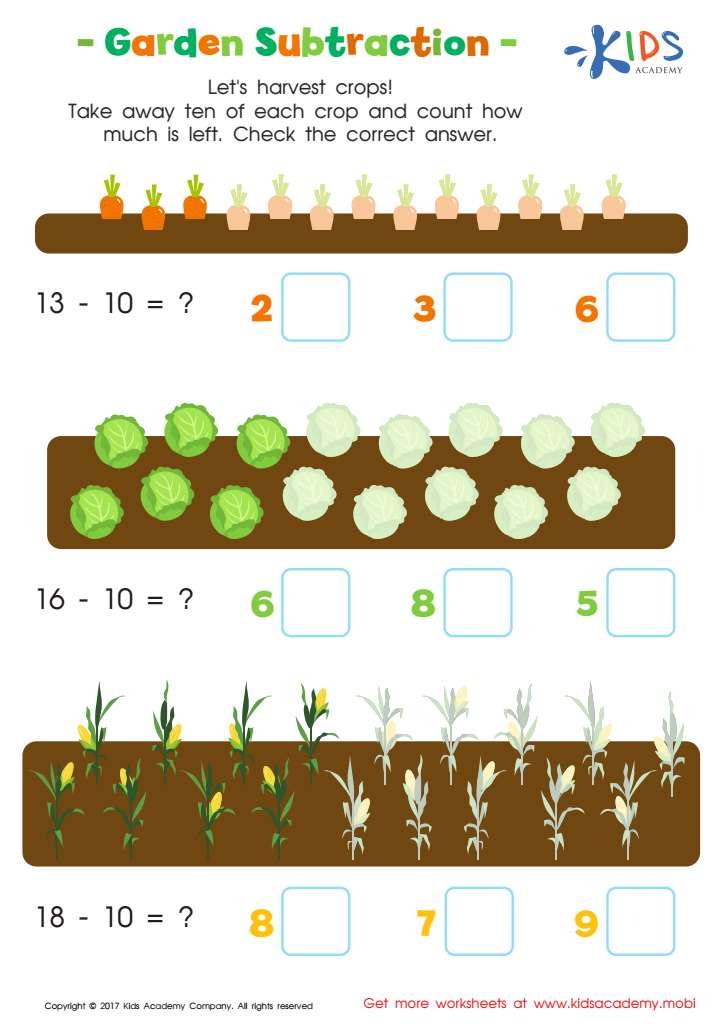

Garden Subtraction Worksheet
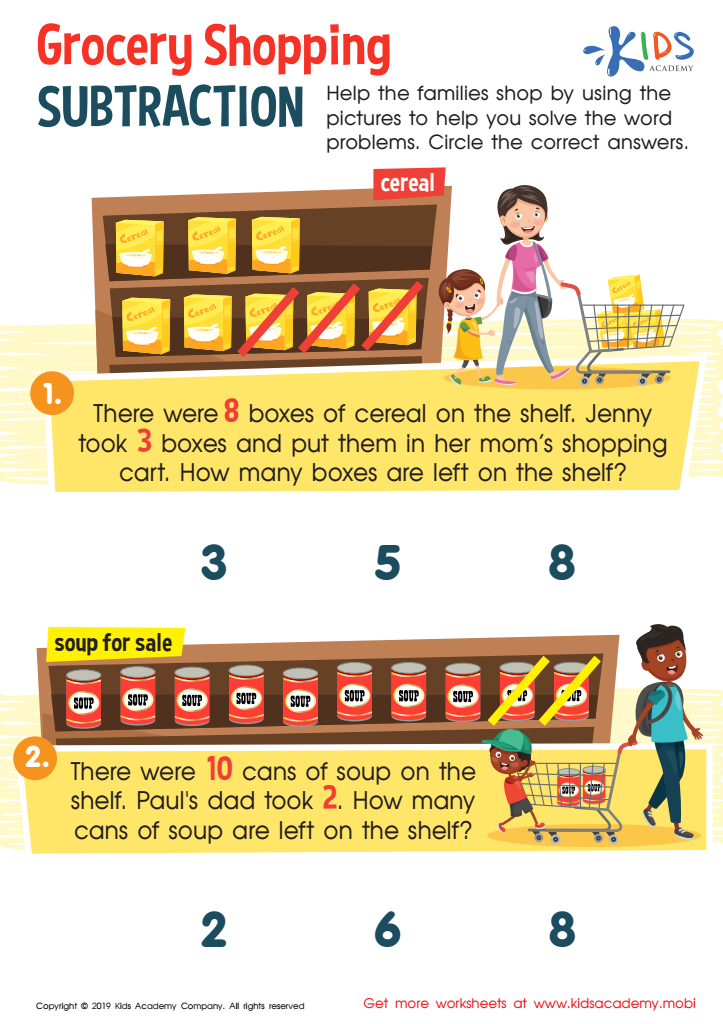

Grocery Shopping Subtraction Worksheet
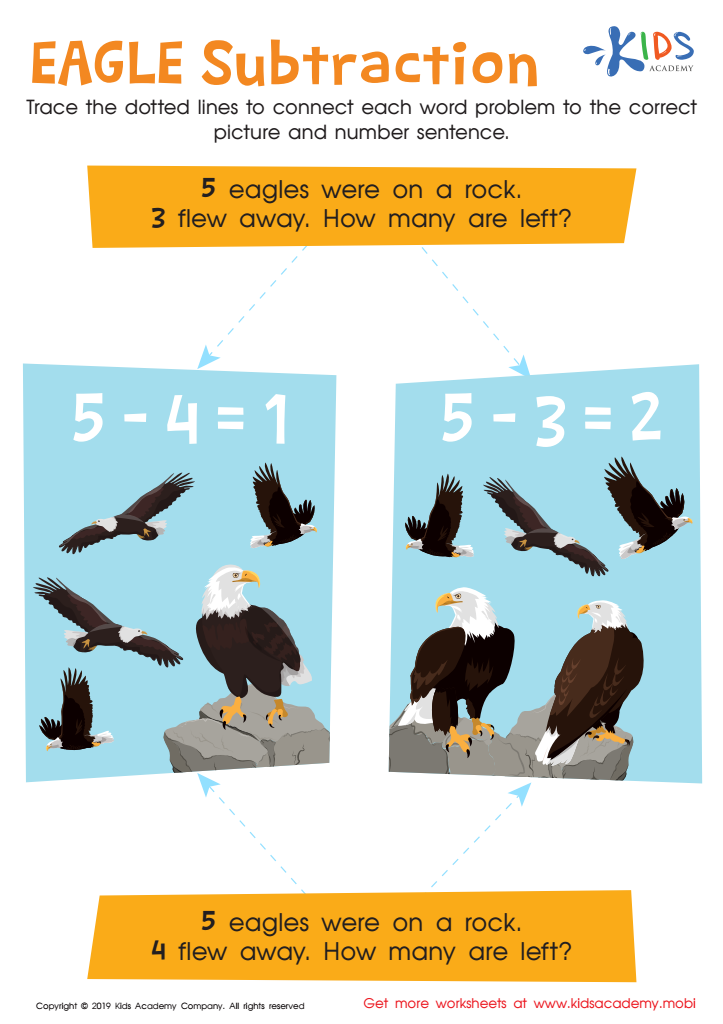

Eagle Subtraction Worksheet
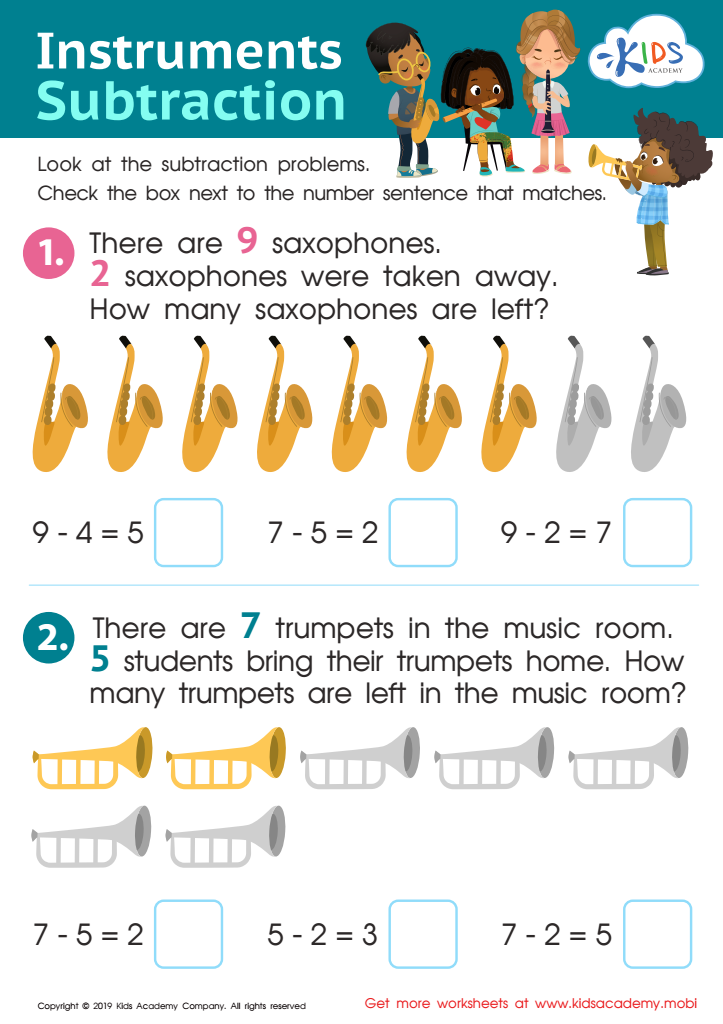

Instrument Subtraction Worksheet
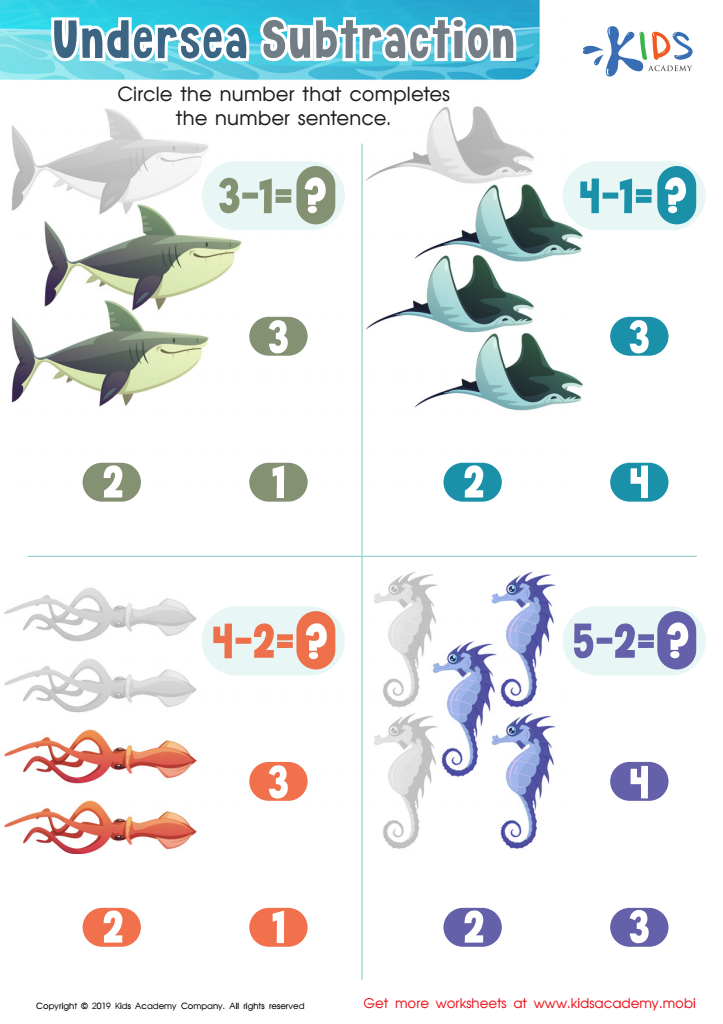

Undersea Subtraction Worksheet


The Five Little Monkeys Nursery Rhyme Worksheet
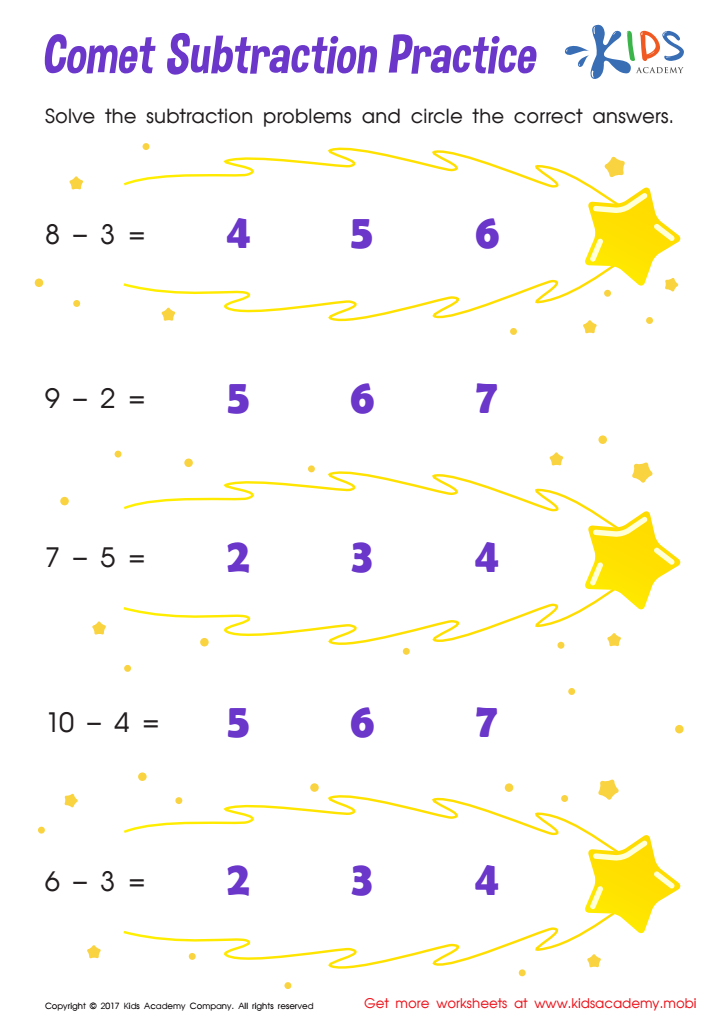

Comet Subtraction Practice Substraction Worksheet
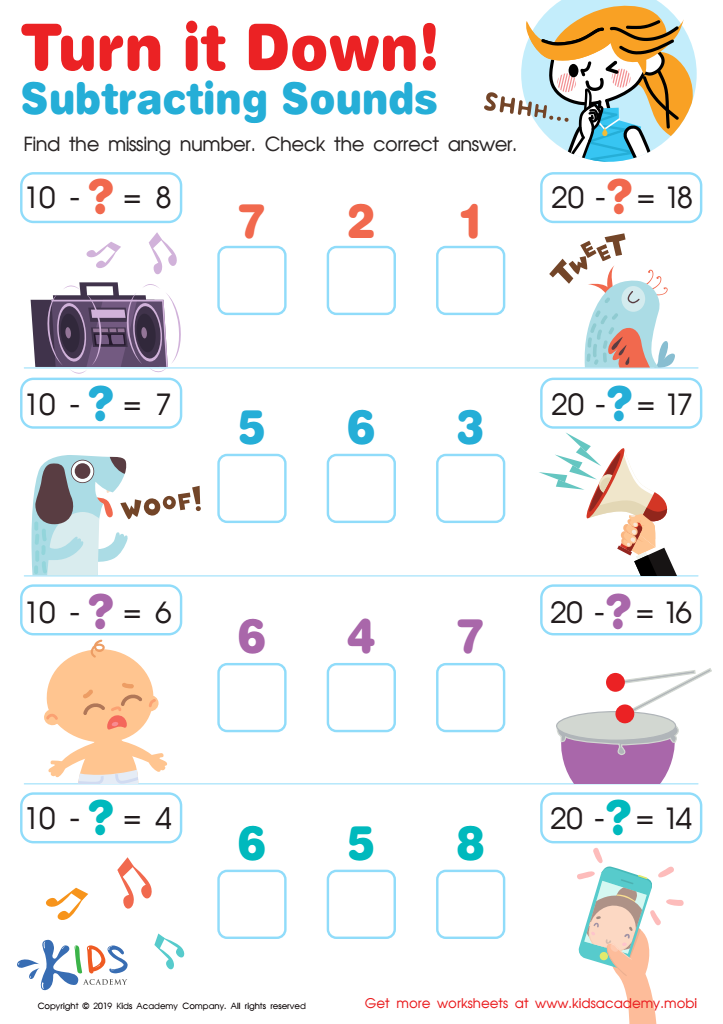

Turn It down! Subtracting Sounds Worksheet
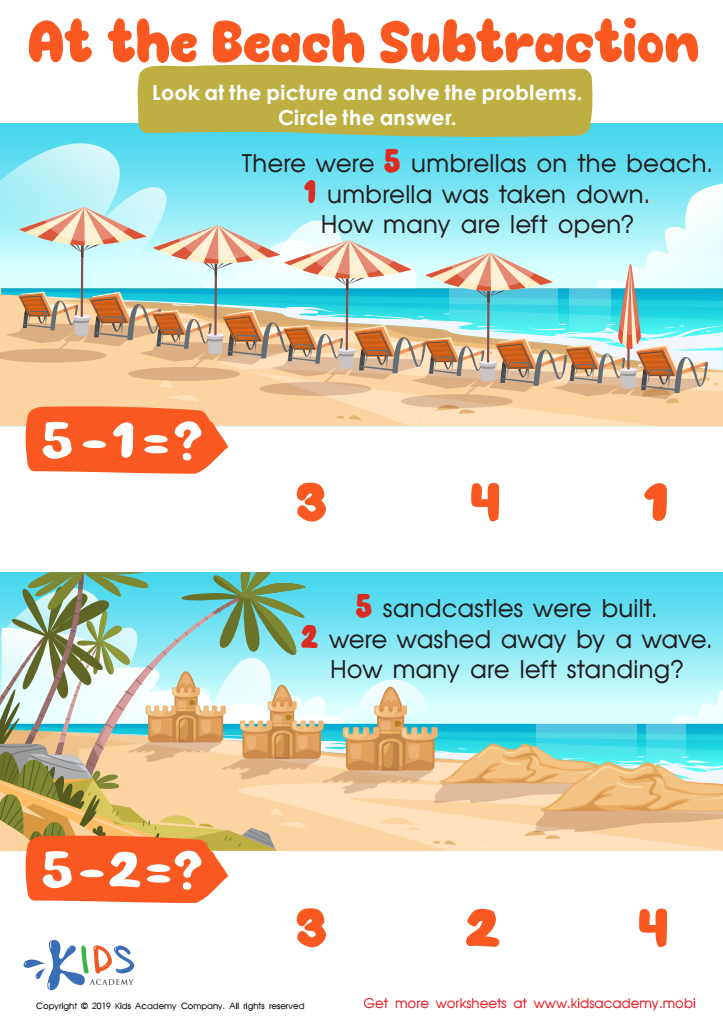

At the Beach Subtraction Worksheet
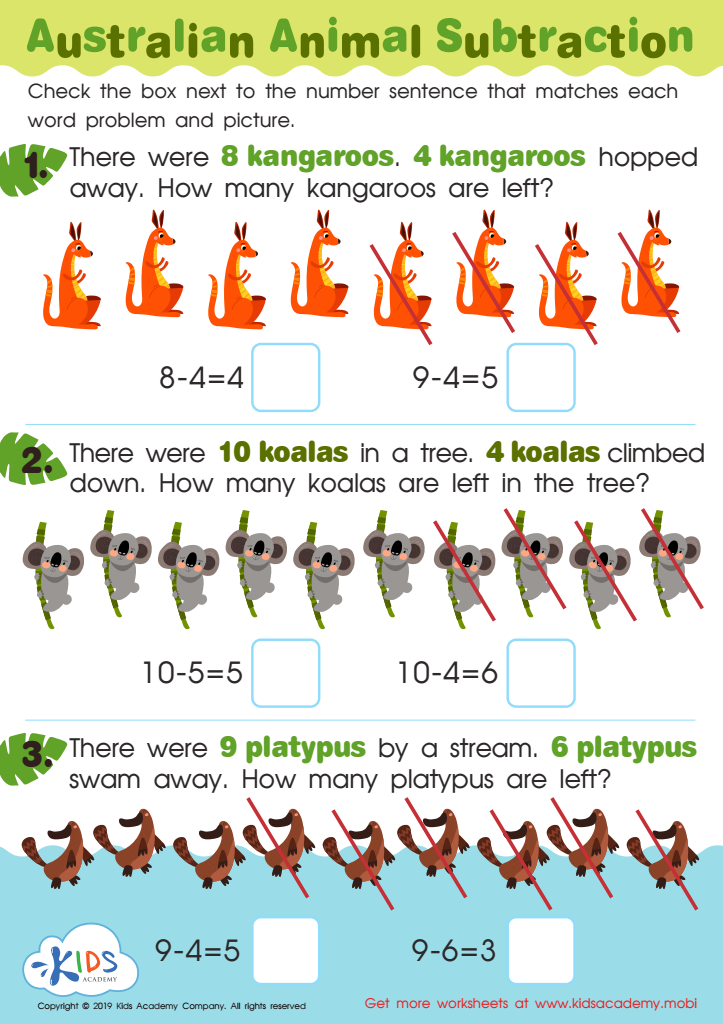

Australian Animal Subtraction Worksheet
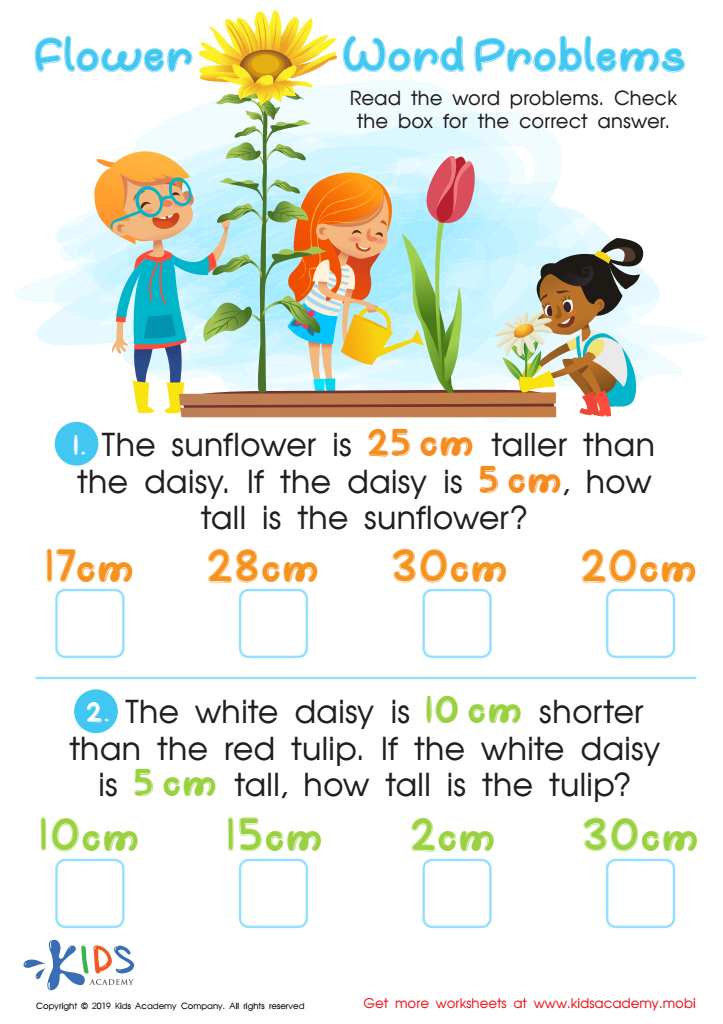

Flower Word Problems Worksheet
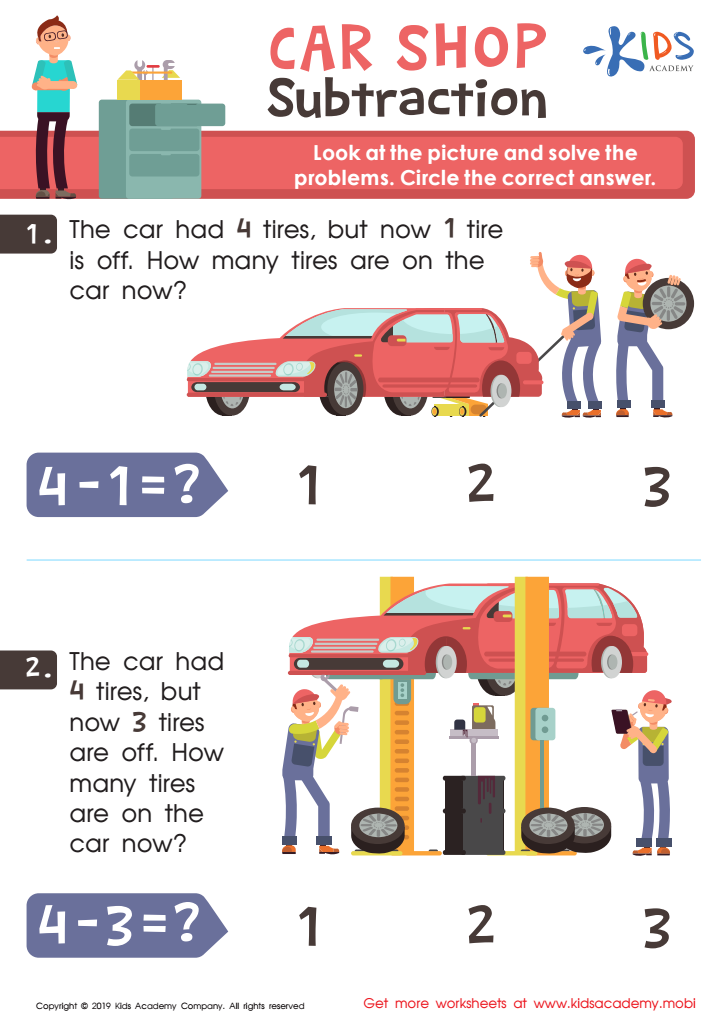

Car Shop Subtraction Worksheet
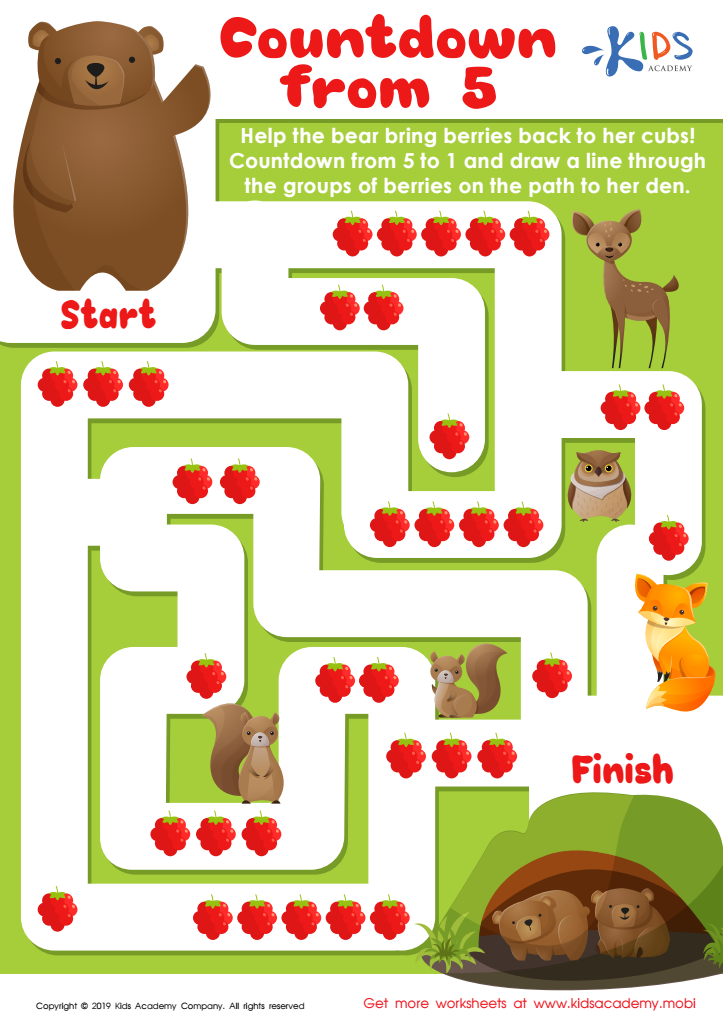

Countdown from 5 Worksheet
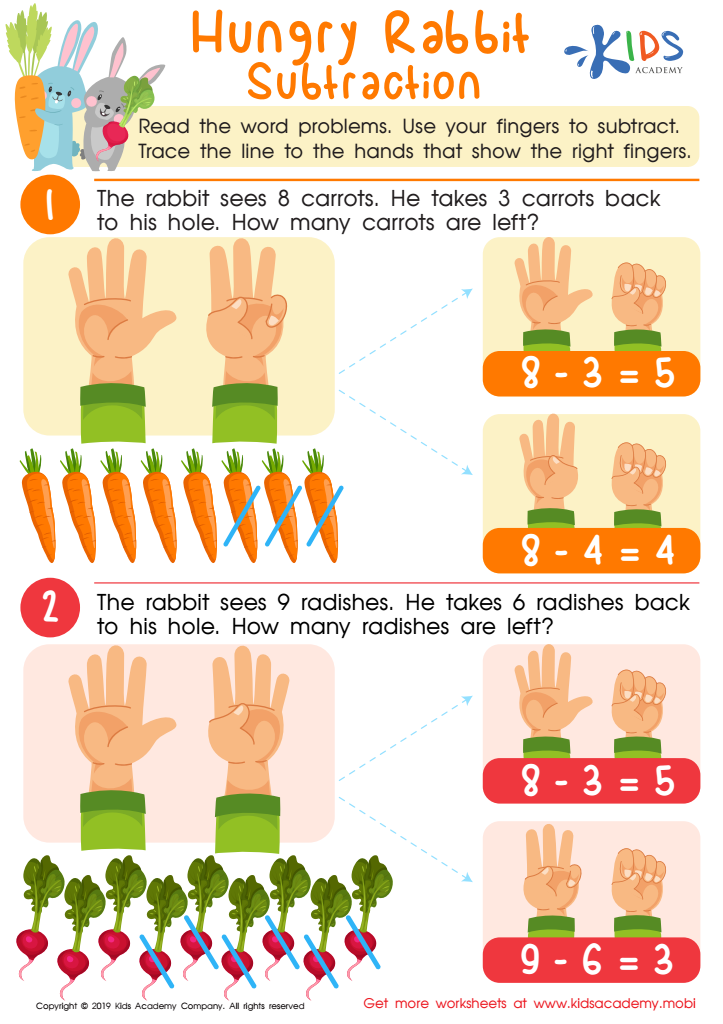

Hungry Rabbit Subtraction Worksheet
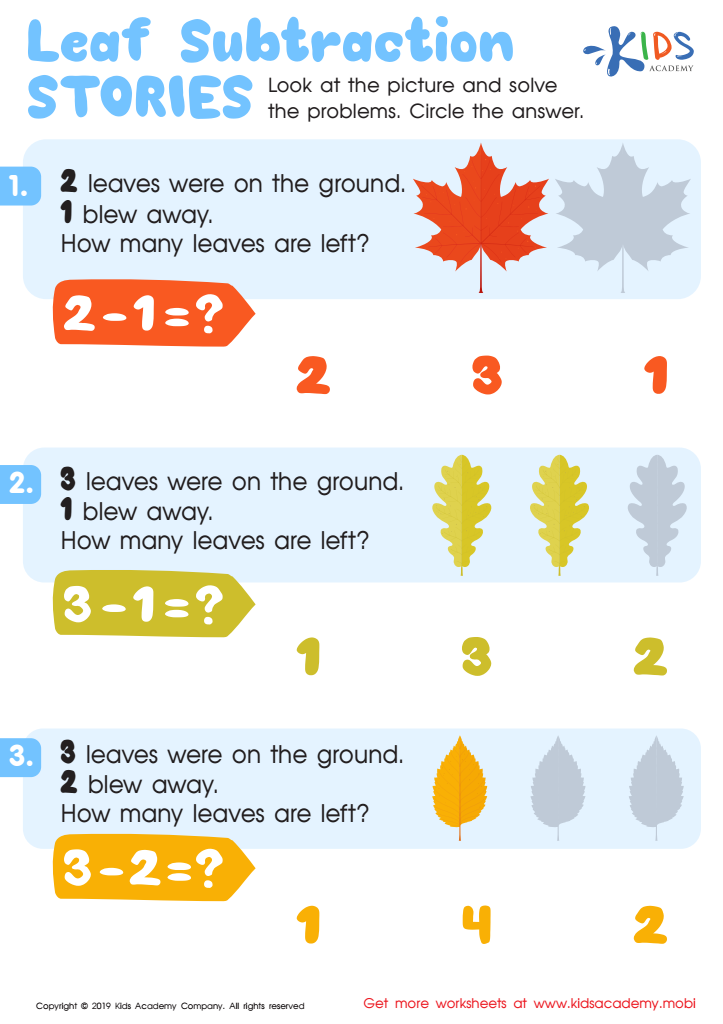

Leaf Subtraction Stories Worksheet
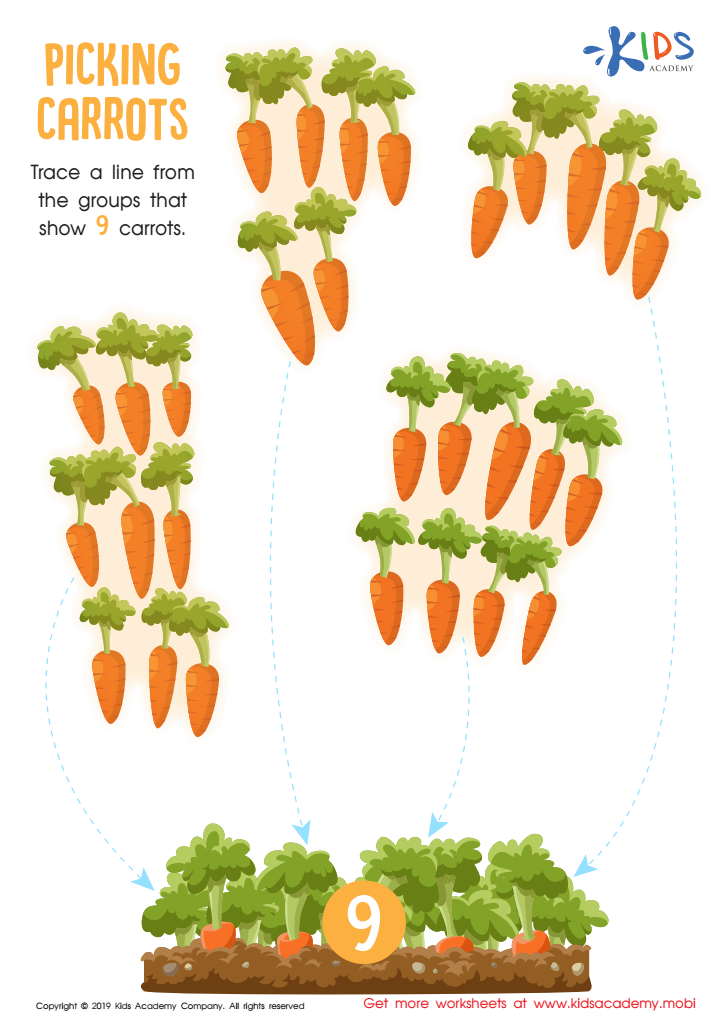

Picking Carrots Worksheet
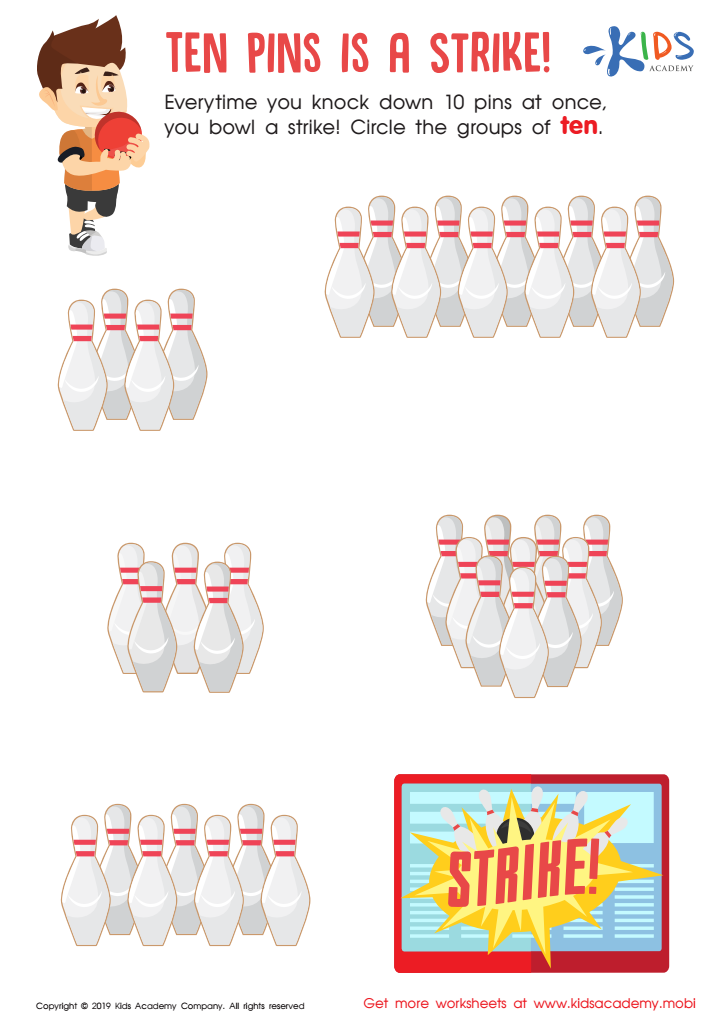

Ten Pins is a Strike Worksheet
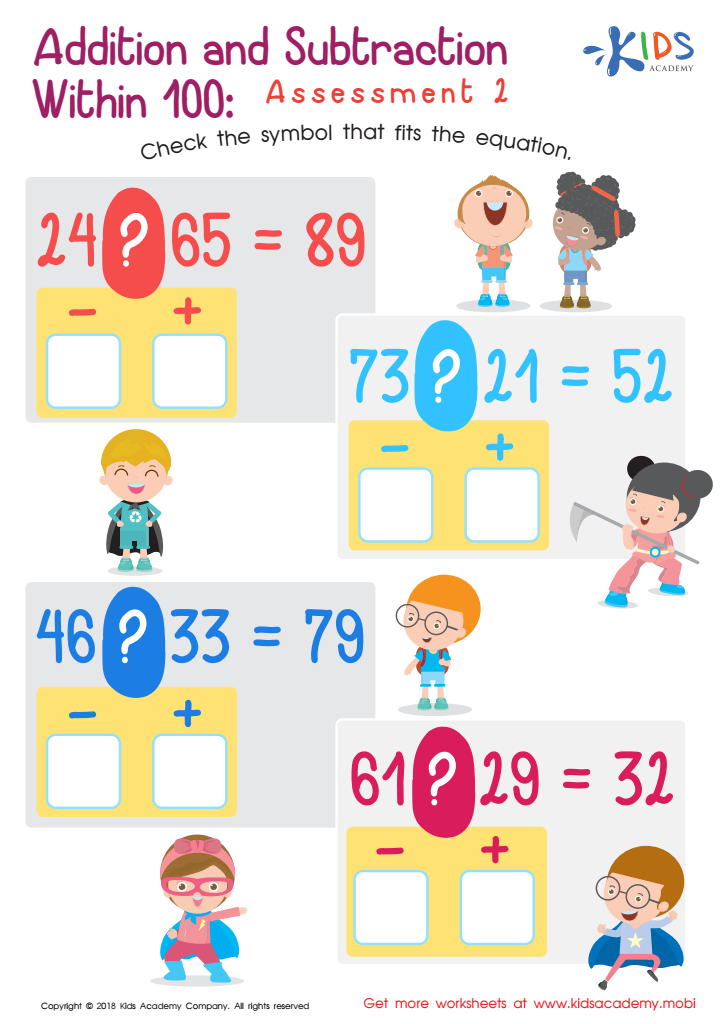

Addition and Subtraction Within 1: Assessment 2 Worksheet
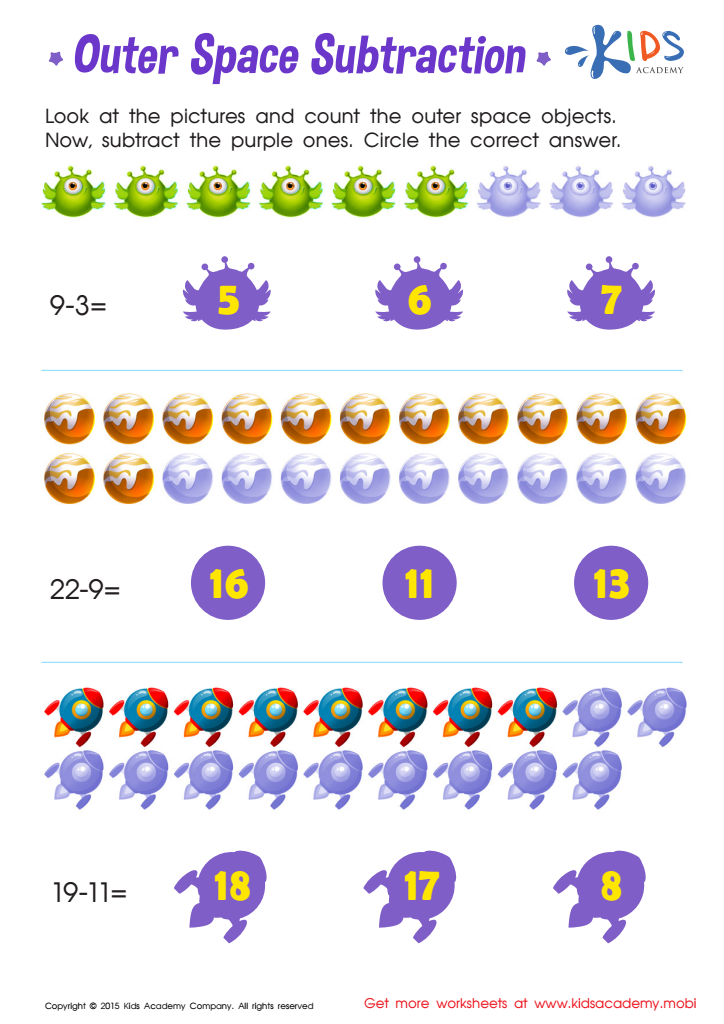

Outer Space Substraction Worksheet
Subtraction practice for ages 6-7 is crucial for several reasons. First, mastering basic subtraction lays the foundation for future mathematical concepts. At this age, children transition from concrete to abstract thinking, enabling them to grasp more complex operations as they progress in their education. For instance, a solid understanding of subtraction will significantly aid in learning addition, multiplication, and eventually, division.
Additionally, regular subtraction practice helps build confidence in young learners. As children repeatedly engage in these exercises, they become more comfortable with numbers, which can reduce anxiety related to math. This confidence can translate into enthusiasm for learning, fostering a positive attitude toward future mathematical challenges.
Moreover, subtraction skills are applicable in everyday situations. From managing pocket money to understanding time or measuring ingredients in cooking, children who excel in subtraction will feel more competent in real-life scenarios.
Lastly, involving parents in subtraction practice encourages a supportive learning environment. It builds a strong partnership between home and school, enhancing communication about educational goals. Overall, prioritizing subtraction practice helps develop critical thinking and problem-solving skills, ensuring that children are well-prepared for subsequent academic challenges.
 Assign to My Students
Assign to My Students





















